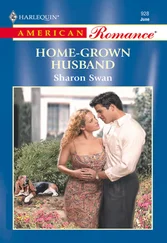Fleece and the group went up to Madison County, near Canton, looked around in the fields and woods, and gathered at lunchtime around a big house, which was unlocked. They went into it, out of the sun, to use the commodes and water. There was only a little furniture in it. Fleece climbed up in the attic. There was a big crate full of letters. He had a field bag, and after reading a few, crammed in as many as he could. He backed down the attic stairs, dizzy as if from snakebite. He was on fire and the rest of the kids and the teacher were eating bologna sandwiches. Then out to the fields again, where there were some really rare flora. But what did he care. He picked up a four-leaf clover and spent the rest of the day trying to keep himself from ripping out of his shorts, rereading the letters in forest holes, getting himself amongst gloomy bushes, the words of sex memorizing him , it seemed, rather than the other way. Getting back in the bus a dangerous bulging thief. Getting a seat to him-self, which wasn’t hard. The rest of them had long since given up on Fleece as a social being. (Fleece hated all the males in his class because of the irrational hope in their faces. He disdained the female for the reason that none of them was a goddess with whom he could fall hopelessly in love.) He jerked the tops of a few letters out of his satchel. “Oh Catherine, Catherine, you are my naked breakfast, lunch, dinner. Well do I gain again that day, noon, as the language of your body aroused you helplessly to climb upon the table from which I was eating, open your robe, and lie back supine, your thighs begging me to perpetuate the holiday of love with you, forget my mere plate of food. And of course you won. Intercourse with you versus trilling food-hunger — never a contest! What did I care for politics, my inherited wealth, the possibility of being a senator in the state congress of Mississippi? Oh my lost sperm in you, oh happy, happy spewing away of ambition and power.”
I read this letter, finding it in the heap of thirty or so in the cigar boxes. Fleece’s voice had left him. He wanted to tell me, but the flu was on him too grimly for him to continue. Fleece’s eyes, as he lay back down, bubbled out as if in a hot yellow pie. He was in an alarming passion.
“So somehow you found out this Whitfield Peter was the same man who broke your camera and chased you?” Fleece nodded. “And did you find out why, or how, he got put away in Whitfield?” I asked, but I already knew, partway. “It wasn’t on account of his hating Jews and niggers, if he did before he went in. It was sex. She turned on him, Catherine.”
Fleece had found a pen and was scribbling on the flyleaf of a textbook. He gave me the book, and I read “Right, rube. You don’t get Whitfielded for hate in Mississippi. Apparently she gave out during the honeymoon sometime. She made a phone call, one would guess. But I know by his other letters that when the Whitfield squad got to his house, he was upstairs, naked, hunching every crease he could find in the pillows, curtains, his own torn-off underwear.” Fleece finished another note on the back of one of Peter’s letters. I took it. “Peter speaks proudly of this in one letter. Like he thought it was marvelous for him to be continuing on in passion for her even when she wasn’t even there any more. Maybe he didn’t go crazy until they had him in Whitfield itself and he became sane enough to know that he didn’t even have access to the proximity of sex with Catherine. If you can believe him, one unfortunate thing did happen when he got to Whitfield. A couple of the Negro orderlies were cruel to him. They.tied him to a bed with raw hemp rope. He was still going to town on the sheets, still trying to simulate sex in any given crease once he woke up again, and the orderlies let these colored maids come in to watch the white man straining at it regardless of the ropes on him. Peter lists this as a grievance he will never forget, the Negro eyes beholding him in his compulsion on the sheets. He had one bright horrified sane eye on all that happened to him in Whitfield, along with his blind, squirming insanity.”
It was four A.M. and I was muddy of sight myself, sleepy, but exhilarated. I was glad I’d stuck it out with Fleece.
“She wrote him, too, I guess. I’d like to see some of her letters,” I said.
“They must be down in that crate in his attic,” whispered Fleece. “I want them. If you’ve got the guts, we’ll go steal them.”
4 / The Theft of Her Letters
Bobby Dove was better the next day, coming out of the flu. He could talk again, when I saw him in the room at noon.
“Sure we’ll steal them, Monroe. We’ll whiz over there in your little sports car, we’ll be up in that attic, we’ll steal them. This morning I was lying here thinking: every thing good in life is stolen. Knowledge is stolen, pleasure is stolen, all art is stolen from time; ideas are stolen from events. None of them wanted us to find them out. Life has done her damned best to keep us away from her secrets. She may be afraid , you see, that when we know Her too well we will hate Her. She is afraid of the master thieves, like me. Yes, we’ll steal those letters!”
I had never thought of it in such large terms, but I was ready to go steal the letters. I had never stolen anything that I knew of. Except, briefly, perhaps the trumpet that night with Lloyd Reese. I held the trumpet in my hands and looked at it anew in the afternoon over in the Fine Arts Building, with Dr. Livace instructing. Well, indeed, it was a fine new wound-up golden thing to me. I could steal music from the dumb muteness of the air. What did Adolph Sax, inventor of the saxophone, what did he think when he made that instrument, wonderful thing, that finally made it into jazz and let loose the rambling reedsweet moan we needed? Stolen, stolen. The reed growing in the swamps, the metal ores underground, and between them the buried dead who had needed the sound but never knew it was possible, needed the Master Thief, even if he never knew he was a Master Thief. I myself was letting loose on the subject of theft. I believed in theft and could almost sing a song to it. And so I got back to Fleece very ready to steal almost anything.
“When do we go after the letters?” I said.
“We’re not going after any letters.” He looked at me coldly and stood up to study the dreary iron skyscape out the window. Today it had been seeping a little cold mist.
“This morning we were going after the letters. To steal them.”
“But since then I’ve gotten afraid. You see, he offered his fields to our botany class. If he looked in that crate in the attic, he would know somebody in the class took the letters. The house was open, but he never said we could go in it. The teacher didn’t know we were in the house until after I took the letters, and then she ran us out. The next Monday, he was over at her house. He was polite but very angry. Something had been stolen from his house. She knew I’d been in the house and called me to come over. A friend of mine drove me over to her house. He wasn’t in the house. She told me he was sitting in his car out front and wanted to see me. I walked out and leaned on the car at the window across from him. The street light was barely catching him, and the fear I had already was nothing like what I had when. I recognized him, vague as he was. He wore the same big hat, leaning toward me. The same man who broke my camera and came at me with his belt. His name was Peter Lepoyster. He had wavy tan hair. ‘You were in the house. Do you know what I want?’ he asked me. I said I didn’t. ‘Well if you are the class leader, I tell you, you’d better get what has been stolen back to me, and very quick. I think thieves and their collaborators should be shot.’ I was so scared I suddenly got bold. I asked him who he thought he was. I told him my father was a general of the National Guard who would come against him anytime he showed force against me, and would cram him so far back into Whitfield he’d never see enough light to find his own dick. He stared back, his teeth apart like some big biting jackass, and he drove away with my hands still on his window. Did you ever see somebody fifty years old who wanted to kill you? Christ, what a mistake I’d made. He knew I’d seen the postmarks of Whitfield on the letters, but I knew he knew who I was and could find out where I lived.”
Читать дальше












